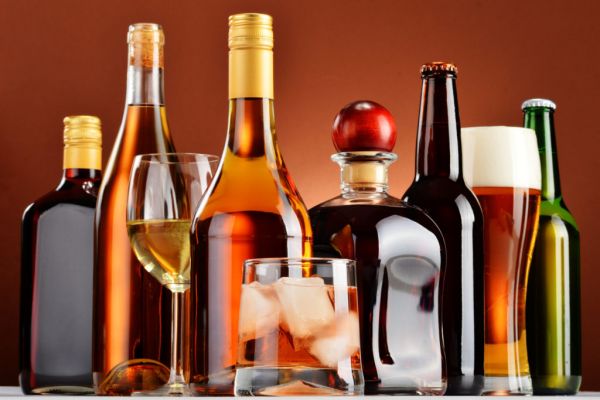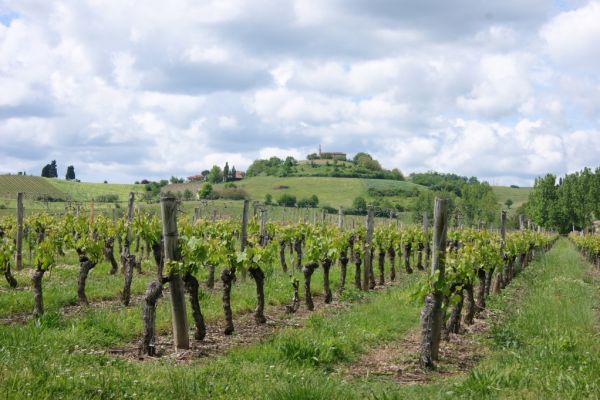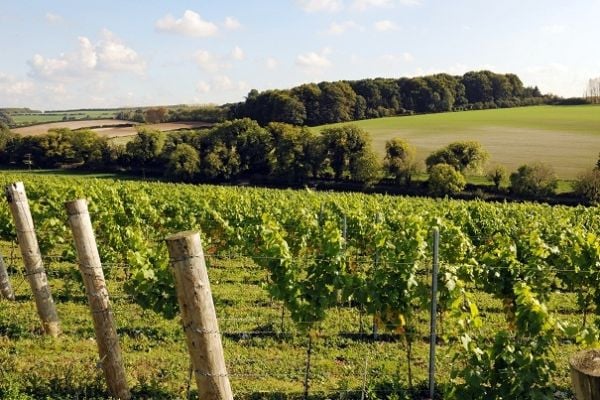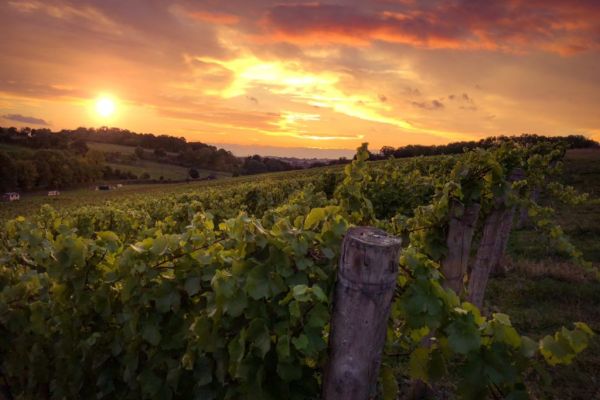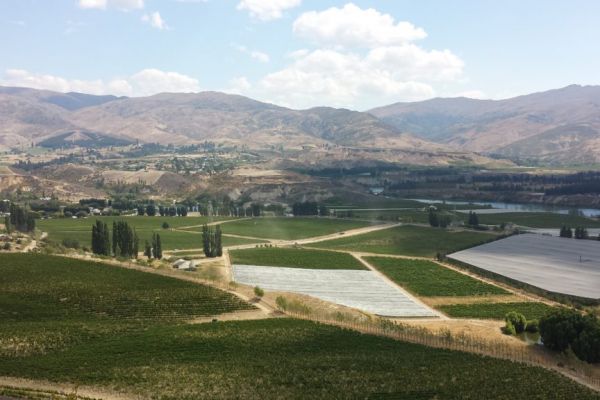Major drinks companies are making deals and reaching joint ventures to boost their offerings of spirits priced at $200 a bottle and up, the fastest-growing segment in the $1 trillion global market for alcoholic drinks.
Louis Vuitton's wines and spirits division Moët Hennessy and rival Campari last month announced an alliance to sell premium beverages online as they jostle for a piece of the $50 billion global high-end spirits market.
Pernod Ricard, which makes Martell cognac, over the past two years has invested in a number of "super‐premium" and "ultra‐premium brands," including a "significant investment" in Japan's Kyoto Distillery, the producer of ultra‐premium gin Ki No Bi. That was followed by the buyout of ultra‐premium German brand Monkey 47 gin early last year.
Drinks companies are seeking M&A opportunities because sales of higher-priced drinks are expected to grow more than moderately priced beverages in the next five years.
"Luxury is and will remain a key driver of our strategy," Pernod Ricard's portfolio strategy director, Yves Schladenhaufen, said in July.
Sales of 750 ml bottles of premium drinks priced at $200 and up are expected to grow 9.3% annually until 2025, outpacing lower-priced drinks, according to the IWSR Drinks Market Analysis. In contrast, sales of $10-per-bottle products - so-called value brands - are forecast to grow just 0.8% annually over the same period.
"Lockdowns created a renewed interest in cocktails as people experimented with their mixology skills at home," said Tony Latham, CFO for Bacardi Limited.
"We believe this will translate into people being more adventurous and seeking out premium, quality drinks when they return to the bar."
Bowmore whiskey maker Beam Suntory, which is privately owned, has committed to achieving more than half its revenue from premium drinks by 2030.
Siddharth Banerji, the head of Kyndal Group, a distributor of Macallan Scotch whisky and other high-end spirits brands in India, said the pandemic reminded some consumers that life is short, leading to a live-for-the-moment attitude.
"There is a philosophical attitude towards alcohol, whereby people are thinking they could die any time and have the realization that money is not going to save your life," he said.
Andy Sung, a Houston-based whisky collector who reviews rare and limited-edition whiskies on Instagram for his 10,000 followers, said that he sees more people showing interest in investing and collecting high-end whisky than he did a few years ago. Prices for rare, small-batch and limited-edition whiskies during the past year reached "absolutely insane" levels, he said.
For example, when the GlenAllachie Distillers Company released just 2,000 bottles of its 30-year old GlenAllachie whisky in May, the scotch that retails for 475 pounds ($662) a bottle sold out instantly and is now going for double that price at auctions, Sung said.
Historically, consumer preference tends to swing from favouring brown spirits, such as whisky and bourbon, to white spirits, such as vodka and gin, every 15 or so years, as young adults tend to reject the brands and categories favored by their parents.
Because brown spirits have been in favour for the past 14 years, some companies now are betting on high-end white spirits - such as tequila and mezcal, a smokier version of tequila - said Ken Harris of Cadent Consulting Group, who represents several spirits companies on deals.
Harris said that companies on the hunt for high-end products to add to their portfolios are willing to pay premiums of as much as five times a brand's value.
In June, Campari also launched a dedicated division focused on luxury spirits in the United States, with its chief executive, Bob Kunze-Concewitz, telling Reuters this strategy would likely give the group the opportunity to buy new "niche and precious brands."
The Italian drinks group, whose premium portfolio includes aged Glen Grant whisky and special editions of Grand Marnier liqueur, is now looking at tequila.
"We continue to look at the super-premium-and-up part of tequila as an area of opportunity...for M&A," Kunze-Concewitz said on a post-earnings call in July.
Bacardi Limited said 2021 would be the "year of innovation" with plans to launch many "new expressions," and limited-editions for some of its bestselling brands including Grey Goose vodka and Bombay Sapphire gin.
In Europe, the pandemic has accelerated consumers' interest in purchasing high-end spirits online, said Alberto Gennarini, a partner with Vitale & Co consultancy, who advised Campari on past deals.
Campari and Moët Hennessy, which entered a joint venture in July, may seek to expand e-commerce platforms Tannico and Ventealapropriete.com beyond France and Italy, according to industry sources.
The return of customers to luxury restaurants and five-star hotels due to vaccination-induced confidence is expected to also boost demand of higher-end drinks. In the United States, nearly 85% of bars and restaurants are open despite a spike in coronavirus cases, a sign that vaccinated people are showing more confidence in dining outside.
Despite rising Delta variant cases, the appetite for dealmaking has not slowed and valuations of premium spirits brands have not fallen, Harris said.
"The Delta variant has not affected anything. It shows that there is a resiliency and a longer-term view on where this category is going," he said.
Harris also noted that while there are limited independent spirits companies making ultra-premium liquors, their valuations have increased even more as they discovered e-commerce as an avenue to sell their products, instead of banking on big companies for expanding their distribution earlier.
Diageo's chief executive, Ivan Menezes, said last week that the company is picky when it comes to deals but it also hasn't been easy to find acquisition targets as there are limited purveyors of ultra-premium spirits.
For such brands, acquisition price would not necessarily inhibit a deal as long as the brand fits within Diageo's "disciplined" growth ambitions, he added, which is to grow the super-premium end of its portfolio in fast growing categories, including US whiskey, tequila, and gin.
Spirits sales, as measured in dollars, in the United States rose 1.3% in 2020 despite pandemic-induced lockdowns, according to the Distilled Spirits Council of the United States, a trade group. Spirits priced within the $115-$170 range grew by 7.3%, while those priced at $179-and-above grew by 12.7%, and sales of $10-and-below bottles declined, it said.
Carlsberg's India Partner Demands Governance Overhaul
Carlsberg's partner in India has called on the Danish brewer to improve governance standards at their joint venture, citing "grave concerns" over its operations.
Nepal-based Khetan Group and Carlsberg have been embroiled in a row since 2019 over how Carlsberg India has conducted internal inquiries into its business practices. This has led to protests from Khetan's representatives and raised concerns from Carlsberg India's auditor.
In its first public comment since the dispute began, Khetan's CSAPL (Singapore) Holdings Pte Ltd, the JV partner, urged Carlsberg "to honour its obligations to improve governance and act in the long-term interests of the business".
Carlsberg, one of India's biggest beer companies with a share of about 17% of a $7-billion market, said in a statement to Reuters that the company had taken efforts to improve governance in India to bring it up to "par with the high standards governing the other companies across our group."
"Unfortunately our JV partner has not always been a constructive partner in these efforts," Carlsberg added.
The Khetan group entity said in its statement that suspected governance issues prompted the resignation of Carlsberg India's auditor and an inspection of its accounts by Indian authorities.
It added that for several years it had "consistently expressed grave concerns over suspected irregularities and illegalities at the joint venture company's India business". It did not cite any evidence in its statement.
Carlsberg said that it was not surprised by the move.
"As the commercial conflict with our JV-partner continues, we are unfortunately not surprised that our JV-partner and his representatives continue to share wide-ranging accusations," Carlsberg said in its statement.
The Carlsberg India partnership is managed by C.P. Khetan for the Khetan Group. However, Carlsberg has day-to-day control as its majority shareholder, the Khetan entity said.
Carlsberg India's auditor, an affiliate of global accounting firm PriceWaterhouseCoopers, quit last year after it declined for two successive years to give an opinion on the joint venture's financials, Reuters reported in November.
Carlsberg is also facing scrutiny from India's antitrust authority whose investigation found in 2020 that the company colluded with other brewers to fix beer prices.
A final ruling has not yet been given. Carlsberg has previously filed a leniency application in the case and in December declined to comment on the matter.
Meanwhile, internal investigations into allegations of unlawful practices at Carlsberg India found potential improper payments to government officials and other lapses, while another found child labour issues at one of its warehouses, Reuters reported in January.
Carlsberg said in response at the time it could not rule out breaches of policies and its code of conduct and did everything possible to prevent such incidents.
France Braces For Slump In Wine Output On Weather Woes
France's wine production could drop by as much as 30% this year to its lowest level in decades after vineyards were hit by spring frosts and summer downpours, its farm ministry has said.
The weather toll on the harvest could bring further headaches for a French wine sector that has seen demand dented over the past year by the coronavirus pandemic and US tariffs.
Champagne producers have warned their harvest potential has been cut by about half due to severe spring frosts followed by torrential summer rain that caused mildew fungus.
In its first outlook for national wine output, the French farm ministry on Friday projected 2021 production at between 32.6 million and 35.6 million hectolitres, 24% to 30% less than last year.
A hectolitre is the equivalent of 100 litres, or 133 standard wine bottles.
"Wine production in 2021 is forecast to be historically weak, below levels in 1991 and 2017 that were also affected by severe frost in spring," the ministry said in a report.
Overall production would be the lowest since at least 1970, ministry data showed, with nearly all production hit by frosts.
Meanwhile, mildew disease spawned by soggy summer conditions affected areas including Champagne, Alsace and Beaujolais.
Wine producers have previously projected that frosts may cut French production by a third.
With grapes about 10 days to two weeks behind last year's growth pace, there was still time for yields to recover slightly, said Jerome Despey, a producer and head of the wine committee at farming agency FranceAgriMer.
Early harvesting was just starting in the far south of France compared with late July in 2020, he said.
Champagne producers say their longstanding practice of adjusting supply with stocks from previous seasons will prevent any spike in prices of the sparkling wine.
The impact on the wider wine market may depend on whether coronavirus variants lead to further restrictions on hospitality and tourism.
"Wine producers are facing major difficulties this year," Despey said. "The lost production will never be made up for by market prices."
In Italy, the world's largest wine producer, farmers association Coldiretti estimates output could fall 5% to 10% this year to 44-47 million hectolitres.
High temperatures have led to the harvest starting a week early in the south, while in the north grape growth was running about 10 days late after heavy rain, Coldiretti said.
PepsiCo To Sell Tropicana And Other Juice Brands For $3.3bn
In other, non-alcohol-related, drinks news, PepsiCo Inc has unveiled a $3.3 billion sale of its Tropicana and other juice brands in North America to French private equity firm PAI Partners, as it looks to simplify its product range and move away from high-sugar drinks.
The company, which bought the orange juice maker in 1998 for roughly $3.3 billion and U.S.-based Naked Juice nearly a decade later for $150 million, will keep a 39% stake in the new joint venture and have exclusive US distribution rights for the brands.
The sale will give PepsiCo the funds to develop and grow its portfolio of health-focused snacks and zero-calorie beverages, CEO Ramon Laguarta said, as the company focuses on more profitable brands.
Rival Coca-Cola Co has also been streamlining its product range over the past year, discontinuing its TaB diet soda and Coca-Cola Energy brands in the United States and selling its ZICO coconut water brand.
"Companies are finding it difficult to provide effective marketing support behind an infinite number of brands that often compete for very similar occasions," Rabobank Food and Beverage analyst Stephen Rannekleiv said in May.
He added that companies are looking to launch new products that have been developed in-house.
The juice businesses made approximately $3 billion in net revenue in 2020 for PepsiCo, with operating profit margins that were below the group's.
The deal is one of the many food and beverage investments PAI has made over the last few years. In 2019, Nestle SA sold its US ice cream business, including brands such as Häagen-Dazs, to a joint venture backed by PAI in deal valued at $4 billion.
Centerview Partners is the financial advisor to PepsiCo on the deal, while J.P. Morgan Securities LLC is advising PAI.
News by Reuters, edited by Hospitality Ireland. Click subscribe to sign up for the Hospitality Ireland print edition.
